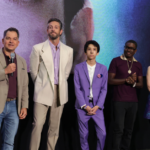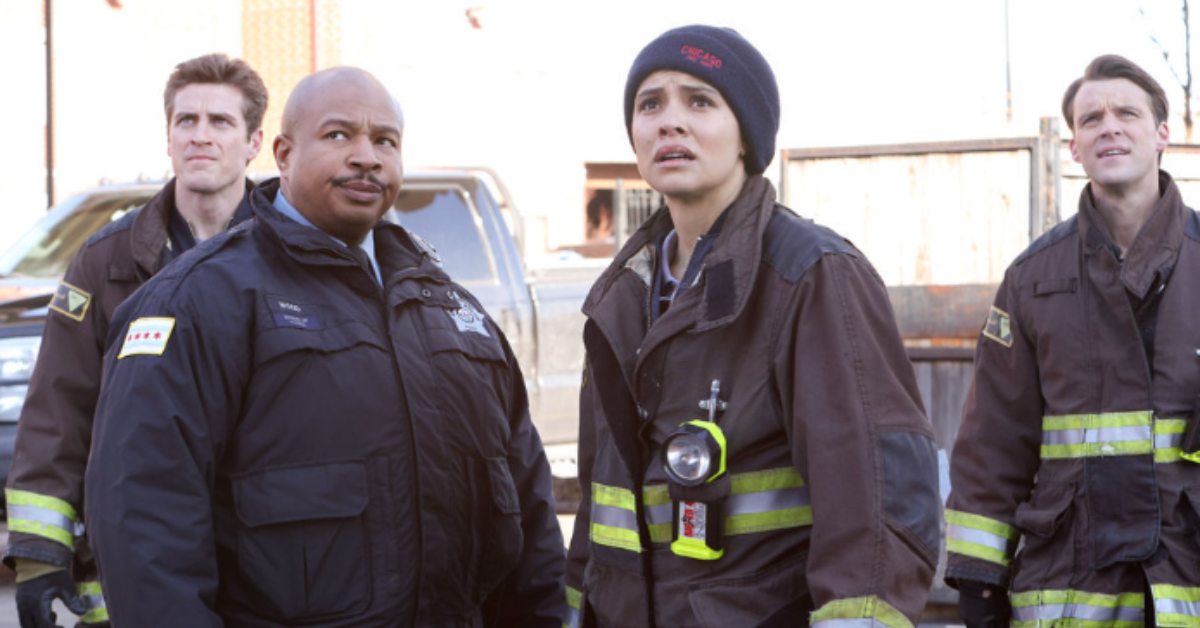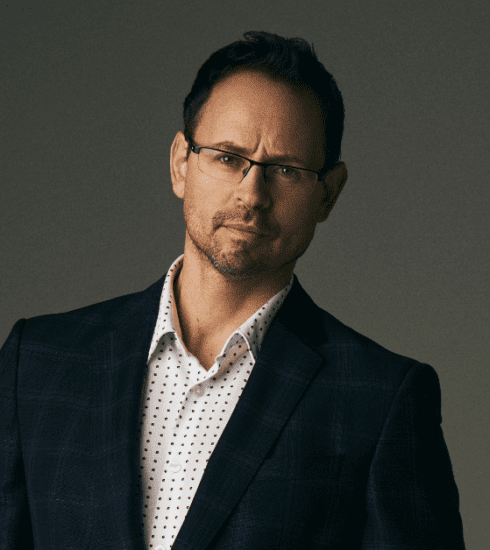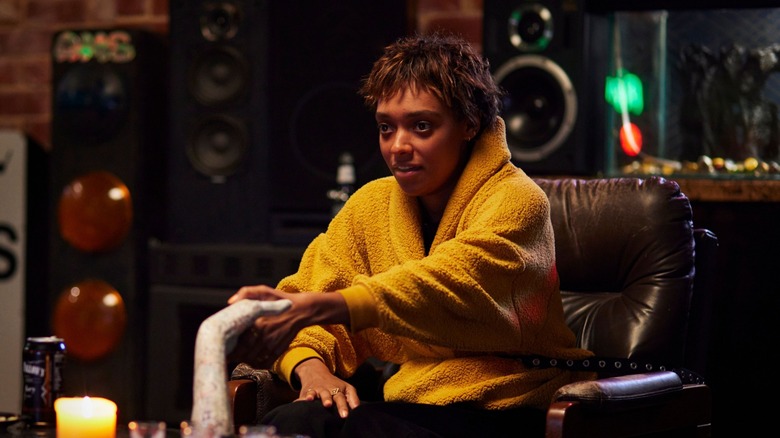Filmmaker Elexis Ray Goodwin is on the rise with “Smile, God Loves You.”
I had the privilege of speaking with Elexis Ray Goodwin. Her film “Smile, God Loves You” is making waves on the festival circuit.
Elexis Goodwin has achieved a high level of education, earning both an undergraduate degree in screenwriting and studio art, as well as an MFA from LMU’s prestigious School of Film and Television. Elexis has always had a deep passion for film, which has driven her to create and bring stories to life. Elexis wrote Smile, God Loves You as her thesis for her master’s program. Elexis, as a filmmaker, is dedicated to using her work to amplify the voices of marginalized characters, particularly those who are often overlooked. She aims to showcase the talent of black artists in settings where they are not typically represented, and to capture the complexities of the human experience through compelling and original stories. Her focus is on highlighting the small yet significant moments that define us as individuals while also connecting us as a collective.
In “Smile, God Loves You”, a young adult named “Skye” faces a challenging dilemma as she navigates the pressures of meeting her mother’s expectations, fulfilling her church obligations, and pursuing her true passion for basketball. In many of Goodwin’s works, she finds inspiration in her personal experiences, exploring themes of family, faith, sports, and community.
Cox: Congratulations on your directorial debut at Tribeca! Can you tell us what it felt like to have your short film “Smile, God Loves You” accepted into such a prestigious festival?
Goodwin: Thank you, thank you! It was amazing to have my short premiere at Tribeca. It was actually the first time that I’ve submitted any of my work into any festival, so to have it premiere at such a prestigious festival as Tribeca [Festival] was a surprise and also a blessing. It was the first time I’ve ever really put myself or my work on display for the world, so it was incredibly encouraging to see one of my projects be welcomed and embraced at such a high level.
Cox: “Smile, God Loves You” chronicles the life of a young adult balancing her passion for basketball with her obligations to her family and church. How much of this story is inspired by your own experiences?
Goodwin: My story is greatly inspired by certain things that I felt growing up, and I draw on my experiences from my adolescence a lot in my work. Maybe not direct experiences, but definitely feelings and themes from my childhood. I grew up feeling like I sort of existed between two worlds – I played basketball competitively, and that was my passion, while I was also living in a very religious family. At times, I was encouraged to play into familial obligations that aligned with the Church more so than where my personal passions lie, and pushed to be who my family envisioned for me to be. While present day, I fully have my family’s complete
support, I definitely see these themes from my earlier years come up in my work and I draw inspiration from that. With this film, I let my creative juices flow on what exactly the story developed into.
Cox: You have a background in screenwriting and studio art, as well as an MFA from LMU’s School of Film and Television. How did your academic journey shape your approach to filmmaking?
Goodwin: My academic journey definitely shaped my approach to filmmaking. My undergrad degree was in writing and studio art, and I feel like that taught me a lot of different ways of storytelling. Writing can be very literal, and same with screenwriting, sometimes, it can feel very one-way in terms of what’s “right.” Studio art, however, is very subjective, and being able to study these things simultaneously developed two sides of my brain and shaped a more holistic approach I take now to creating a project. I was very blessed to also receive my Master’s from my same undergrad institution [LMU], and developed under amazing professors who really understood my voice as a director and writer and encouraged me to lean into my creative and storytelling voice. Some professors may steer you away from taking too many risks creatively, but I was never stifled during my academic journey. I was lucky to have professors who pushed me and saw my potential, especially during my thesis process, which actually became Smile, God Loves You!
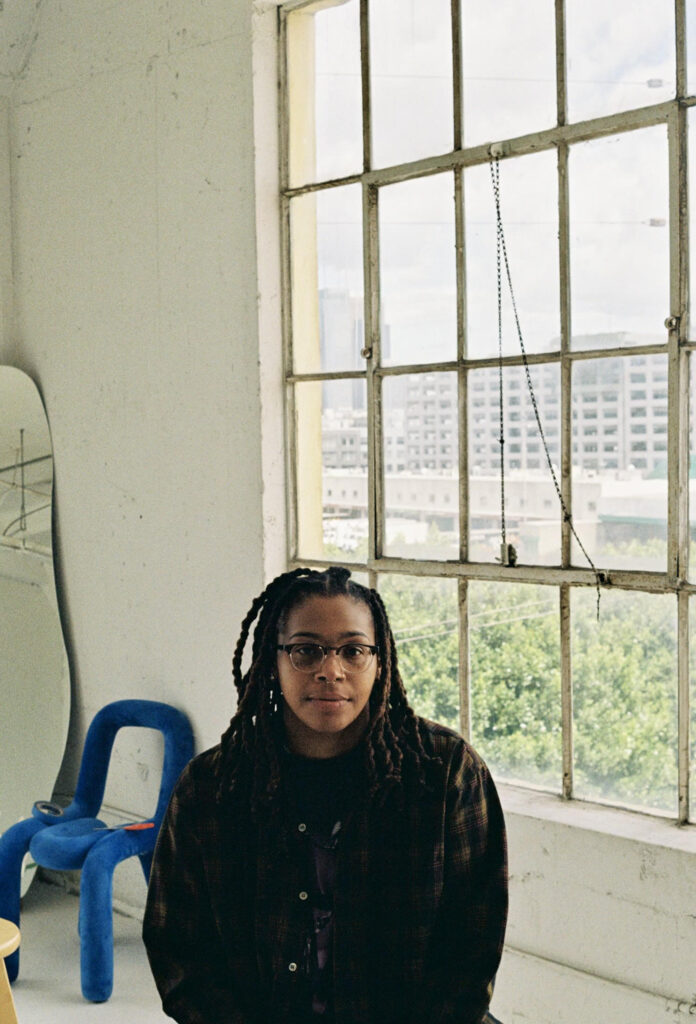
Cox: Your film aims to give voice to often unseen and underrepresented characters. Can you share more about why this is important to you and how you approach this in your work?
Goodwin: For me, as a filmmaker, it’s always a goal of mine while creating a project that I am giving voice and making space for often underrepresented, misrepresented, or unseen characters, to shed light on the fullness of their humanity and experiences. I take a great deal of inspiration from my own life, people who look like me, and the people around me within my community, who I’ve seen be under or misrepresented consistently in mainstream media. It’s important to me to create characters that are depicted in a real way, not one-sided, or who’s stories are shown in pieces. I want to create storylines of characters I could have related to when I was younger, and I didn’t see much of that while I was growing up that I felt connected to. Now, as a director, It’s incredibly important for me to guide the stories that would have helped and inspired me in my childhood. When you see yourself represented, you feel more safe, and comfortable, so that’s always my goal as a creative. There’s a quote by James Baldwin that I love. It goes:
“You must understand that your pain is trivial except insofar as you can use it to connect with other people’s pain; and insofar as you can do that with your pain, you can be released from it, and then hopefully it works the other way around too; insofar as I can tell you what it is to suffer, perhaps I can help you to suffer less.”
Cox: As someone who has been passionate about storytelling since a young age, what were some of the key influences or inspirations that shaped your desire to become a filmmaker?
Goodwin: I’ve been passionate about art since I was a kid, for sure. I wasn’t sure I was going to be a filmmaker, exactly, but I grew up with a deep love of movies that stemmed from family outings to the theater. It was an activity for us, and I loved getting to drift-off to a different world, or different place for a few hours at a time, and it was a bonding experience for us. When I was in high school, I was exposed to a lot of different kinds of film that expanded my horizons as well. I discovered a lot of these different kinds of films through music, actually. For example, there’s a music artist who I love that’s called ‘Blu’. In a lot of his music, he samples from different movies and after deep-diving his work, I began to watch these movies and they were totally different from your typical blockbuster. They were smaller, more singular-stories, and it was my first time being exposed to these kinds of films, which I grew to be very attracted to from a creative standpoint.
Academically, I was always a strong writer, so when it became time to hone-in on what I wanted to study in college, and knowing I wanted to find a way to combine all my loves in one medium, I stumbled into screenwriting. I gradually got into directing from that entryway, and a few years later, here we are!
Cox: Can you elaborate on the themes of family, faith, and sports in the film and how they relate to your personal experiences?
Goodwin: I’ve always been a very family-oriented person. Faith has always been a big part of my life, too. I’ve been on a journey, personally, of understanding my own relationship with the Church, but I have a lot of faith in my personal and professional life. I believe in a higher power, definitely, but I have a lot of faith just in a more spiritual sense as well – faith in myself, faith in the process, etc. Sports is, and always will be a large part of my journey, too. I grew up playing, and surrounded by sports and it’s incredibly important to me. My dad’s career is in sports, so it’s something my entire family has always been around. There’s a photo of me from a very young age, one-years-old, where I’m with Michael Jordan [laughs], so yes, sports have been with me forever. It all feels like a big compilation of how I got to where I am now.
Cox: “Smile, God Loves You” was originally your thesis project. How did the process of developing this film as a student project contribute to its success and eventual selection for Tribeca?
Looking back on it, I think the environment I was in definitely helped shape my creative successes, which ultimately contributed to my Tribeca selection. A lot of people actually didn’t realize Smile, God Loves You was my thesis at first! I knew I was going to submit it, and it was always a goal of mine. Before this project, I had done two other shorts that I was still nit-picking after they were completed so I couldn’t bring myself to submit either of those . . . but I said to myself, you’ve got one more, and you have to submit it, so I put everything into the creative process and structure of the film so that the final project would be of the caliber for submission. Going into it with that regard allowed me to prepare mentally for the impending journey, so I definitely think that helped contribute to the success. I was also very lucky to have my professors and cohort in school who knew me, and knew what my goals were with the film, and provided notes and guidance that gave way to me ending with the final product we have now.
Cox: What challenges did you face while creating “Smile, God Loves You,” and how did you overcome them?
Goodwin: There were definitely challenges in the shooting process. I had to reign myself in to fit my budget, and I was very specific in terms of where and how I wanted to shoot. I knew I wanted to film in Oakland, California, but I was based in Los Angeles – so not only did I have to get myself to Oakland, but I had to get my crew and cast there, too. During our shoot, we had a crazy storm and the weather shut down our production. It took about two months before I could get my crew and cast back to Oakland to finish the shoot, which meant I only had two weeks once filming was completed to fully edit and cut the final piece. That was incredibly challenging, but as they say, “pressure makes diamonds,” and it helped me cut my teeth in this world. I was very blessed to find a great DP to help me through this process, too.
Cox: Can you share any memorable moments or learning experiences from the production process?
Goodwin: “Kill your darlings,” as they say. There were things I was emotionally attached to through the process, but they didn’t need to be part of the final project in the end. It was hard for me to cut it, but the ultimate ending yielded the best creative result. Once I got past that, I was able to see that it ultimately made the film better. My biggest takeaway from that is to not be afraid to let the film take on a journey of its own, and not be stifled by your own personal intentions. There were some things I wrote, originally, that we didn’t get
to shoot, and we had to abandon it during production. However, ultimately, it made the best product. Had it been what I originally envisioned in the first place, it wouldn’t be the project it is today, so let things happen as they need to, and let the project tell and show you what it needs to, and should be.
Cox: How do you hope audiences will respond to “Smile, God Loves You,” and what message do you want them to take away from the film?
Goodwin: I don’t like to tell people how and what they should feel. It’s my job to make the film, and the audience should take away what they will. My intention with making films is to encourage people to follow their heart and their own voice. A lot of times, it can be challenging to divulge your own path, but I want to create stories that inspire people to follow their own destined journey, and that’s a beautiful takeaway. With that said, whatever people take away will be in the context of their own experiences, and that’s an incredible thing about filmmaking.
Cox: Can you discuss your vision for future projects? Are there any particular stories or themes you are eager to explore next?
Goodwin: I have a lot of really exciting things in the works! I’m working on a feature and shorter-form projects, too. I can’t divulge too much about the storylines at the moment, but they definitely fit into things we’ve already discussed, which often shape a lot of my work. You’ll have to stay tuned to find out more!
Cox: What advice would you give to aspiring filmmakers who are looking to submit their first projects to major film festivals?
Goodwin: If you’re an inspiring filmmaker and looking to submit your first project, you need to just go for it! You never know what can happen. I submitted to Tribeca [Festival] without any expectation, or any inside connections. I believed in my film, and I wanted to put it out in the world. Submit to whatever you can, dream places, because you never know what may happen.


